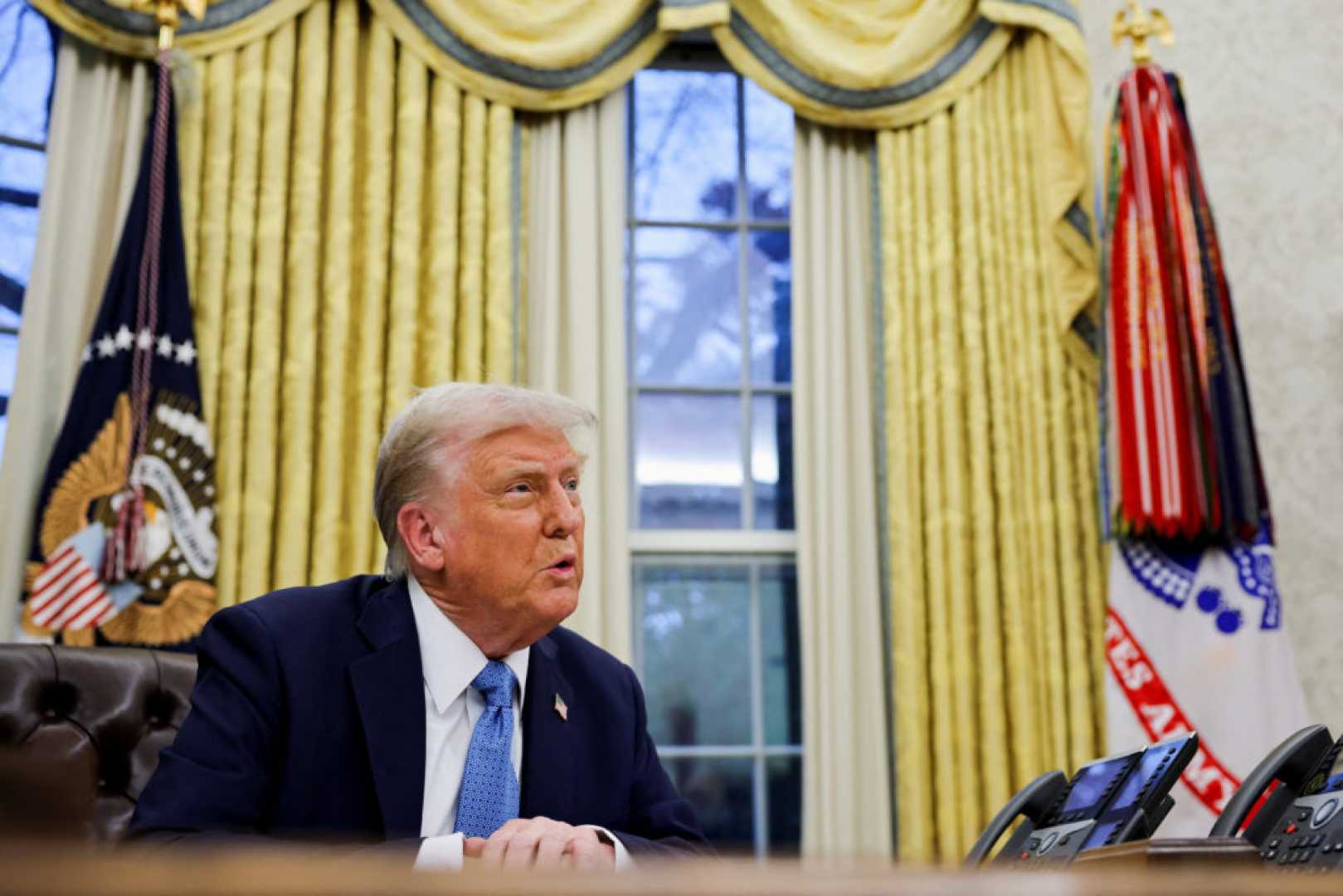Business
Trump Imposes Sweeping Tariffs on Mexico, Canada, and China

WASHINGTON, D.C. — President Donald Trump announced sweeping tariffs on Mexico, Canada, and China on Saturday, February 1, 2025, marking a significant escalation in his administration’s trade policies. The tariffs, which include a 25% duty on all imports from Mexico and most goods from Canada, along with a 10% tariff on Chinese goods, are set to take effect on Tuesday, February 4, at 12:01 a.m. ET.
The move, which Trump described as necessary to address national security concerns, has drawn swift retaliation from Canada and Mexico. Canadian Prime Minister Justin Trudeau called the tariffs “unfortunate” and warned of reciprocal measures, while Mexican President Claudia Sheinbaum announced plans to impose retaliatory tariffs on U.S. goods.
Trump defended the tariffs in a series of posts on Truth Social, stating, “There may be some pain, but the results will be spectacular.” He emphasized that the tariffs are aimed at curbing the flow of fentanyl and undocumented immigrants into the U.S., as well as rebalancing trade relationships.
Economists have warned that the tariffs could lead to higher prices for American consumers, particularly in sectors such as automotive, agriculture, and electronics. The U.S. imported $87 billion worth of motor vehicles and $64 billion worth of vehicle parts from Mexico in 2024, according to Commerce Department data. Canada is also a major supplier of food and alcoholic beverages to the U.S., including grains, livestock, and tequila.
In response to the tariffs, Canadian provinces such as British Columbia, Ontario, and Quebec have announced plans to pull American-made liquor from government shelves. “Every year, the Liquor Control Board of Ontario sells nearly $1 billion worth of American wine, beer, spirits, and seltzers. Not anymore,” Ontario Premier Doug Ford wrote on social media.
Meanwhile, Mexican President Sheinbaum rejected Trump’s accusations that Mexico’s government has ties to drug cartels, calling the tariffs “unjustified.” She also addressed Mexican migrants in the U.S., saying her country would welcome them if they decide to return.
The tariffs have also sparked concerns among U.S. businesses and lawmakers. Sen. Tim Kaine (D-VA) criticized the administration for failing to consult Congress, stating, “We’re learning about these drastic moves from our citizens rather than from the administration.”
As the tariffs take effect, the economic and diplomatic fallout is expected to intensify, with both Canada and Mexico vowing to protect their interests while seeking to avoid further escalation.












